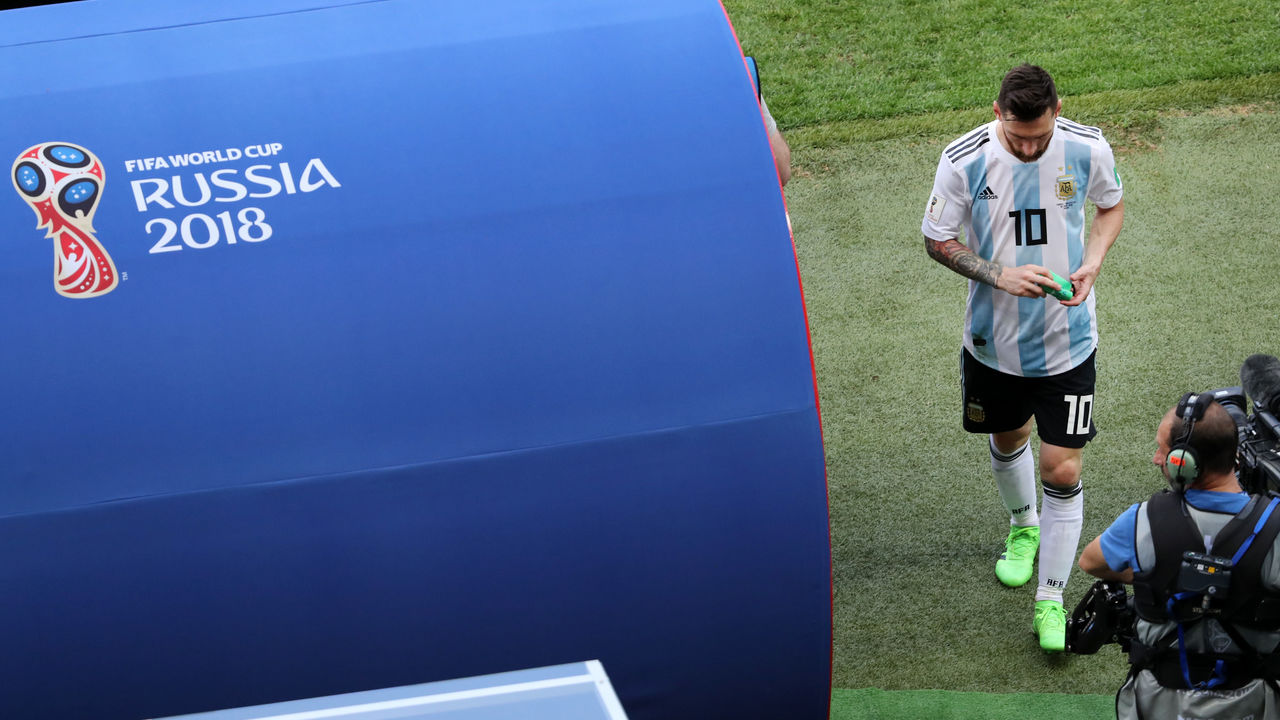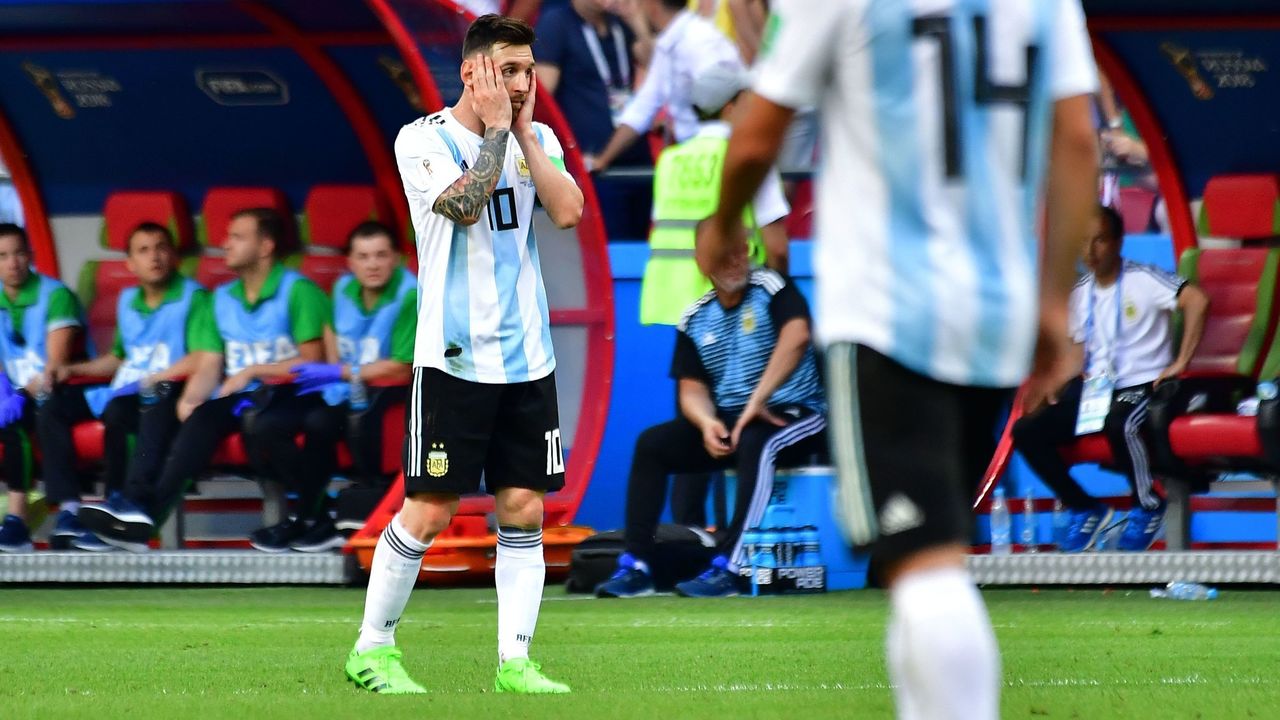Messi's legacy is incomplete without the World Cup - but it's not his fault
Lionel Messi has suffered blow after blow while representing his country - the latest of which came Saturday in a topsy-turvy 4-3 defeat to France that kicked Argentina out of the World Cup.
It's the eighth major international tournament Messi has entered and departed without a trophy to show for his efforts. He's carried a burden that no one in football can understand, his achievements - or lack thereof - constantly weighed against Diego Maradona's. Argentina has asked Messi to be the scorer, the creator, the leader, and Maradona himself.
As 1986 World Cup winner Jorge Valdano wrote in the Guardian, Messi is "a tortured soul who carries the fierce demands of 45 million people on his shoulders."
If his appearance Saturday in Kazan is indeed the final one of Messi's frustrating international career, history will begin to pass judgement. History will point out that he scored just six goals in 19 World Cup matches - all against Nigeria, Iran, and Bosnia and Herzegovina - and that he never found the net in eight knockout fixtures. History will argue that Messi couldn't elevate Argentina the way Maradona did and that he lacked the leadership to inspire his teammates and pull them together.

History tends not to care about the context of players' success and failures, but there's a lot more nuance to Messi's legacy than trophies won and lost. His career seems incomplete without a World Cup only because Maradona won it, but that's not the whole story. Messi has trudged along with far worse teams than Maradona's 1986 squad, leading a national team and football program that's in complete disarray. He's dealt with an incompetent Argentine Football Association that couldn't arrange the right flights at the 2016 Copa America, and was even under FIFA's supervision because of a corruption scandal.
If anything, it's Messi who's kept a flailing national team from further embarrassment. He's the only reason Argentina made the trip to Russia, his hat-trick performance against Ecuador securing a last-minute berth in the competition. He tried to jump-start a midfield that was devoid of invention, dropping deep to recirculate the ball. It was all futile. He wasn't in sensational form, but his team's shortcomings required Messi to move away from goalscoring positions.
Related: Why Messi must win the World Cup for Argentina to love him
And yet Argentina needed more of his individual brilliance. It needed more than his goal against Nigeria, and more than the two assists against France. It needed Messi to score in every match - certainly more than the total he amassed in four World Cups - and to dominate in every sense.
That very dependence crippled the national team. It leaned too much on solo efforts and not enough on a master plan. Jorge Sampaoli never had control of his players, his high-pressing tactics were ill-received, and his slow defenders were pulled apart.
This identity crisis has kept La Albiceleste - and Messi - from achieving the ultimate goal. Most of his teams haven't had the kind of rock-solid defence that wins big tournaments. Alejandro Sabella's side at the 2014 World Cup most closely resembled a cohesive unit, and that was the moment that passed Argentina by.

It can be argued that Messi failed to deliver in the biggest moments - that he missed crucial penalties that could have changed everything - but even Maradona needed help from teammates Valdano and Jorge Burruchaga to win the 1986 World Cup. The best can't always do it by themselves.
Unfortunately, the conversation, which is becoming more and more one-dimensional, is focused more on what Messi hasn't achieved than what he has. The absence of the World Cup is a greater sin than any of his Champions League titles are successes. The debate ignores all the things happening in the background: the vulturous media dissecting Messi's body language, the boos and jeers he withstood from countrymen, and the inquisition over his Argentinianness. The chatter has infected one of the greatest players in the history of the sport - and our memories of him. His career has become the subject of an interminable tug of war.
Messi has enjoyed greater things in his club career than Maradona, but that counts for little back home. The exclusivity of World Cup glory is celebrated more than sustained excellence.
In a profound way, Messi needed to win the World Cup to earn the universal respect of the men and women in Argentina. He needed something tangible to show that he belonged in the pantheon of greats. He may never have that absolute support now.
(Photos courtesy: Getty Images)